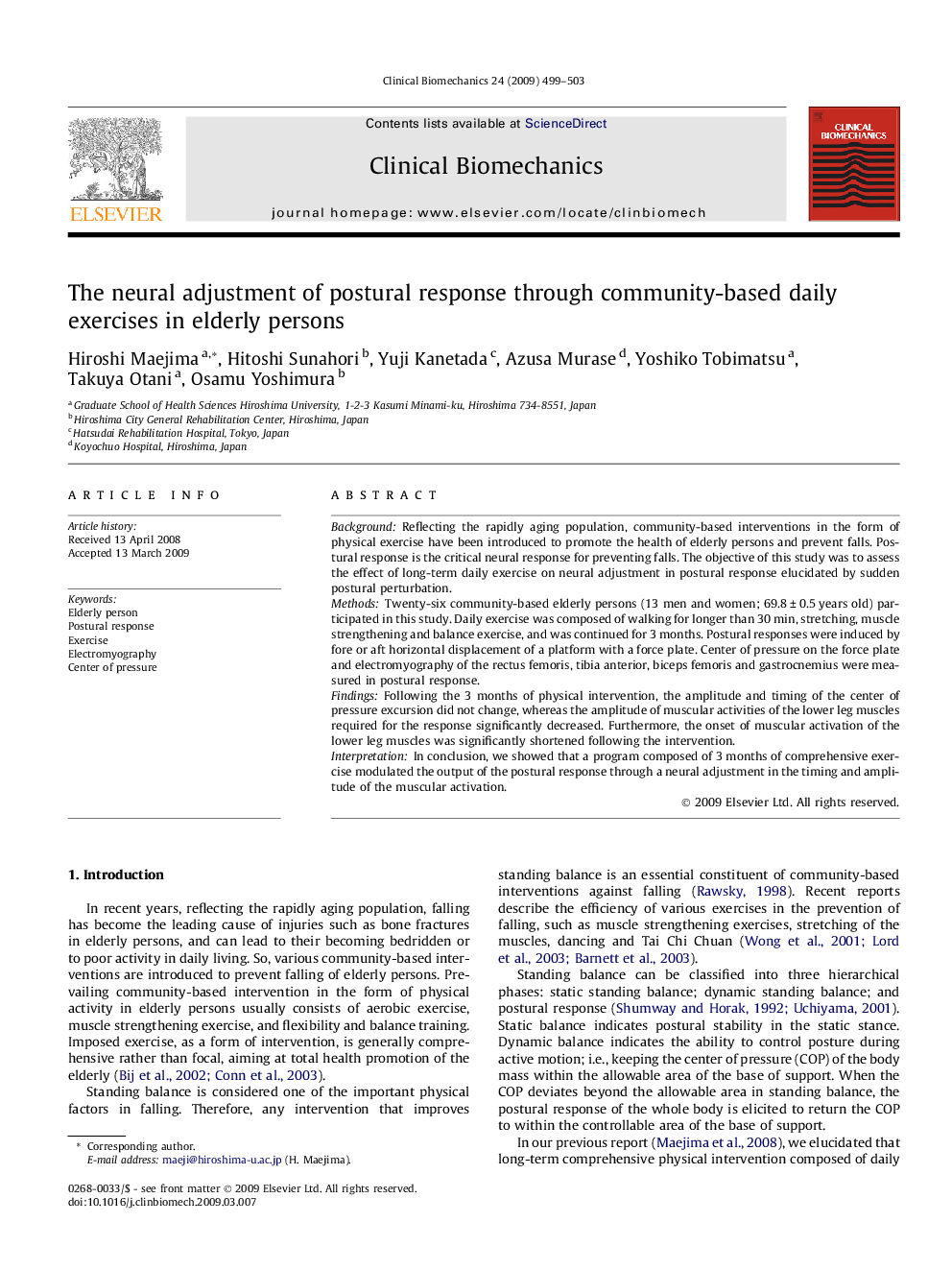| Article ID | Journal | Published Year | Pages | File Type |
|---|---|---|---|---|
| 4050762 | Clinical Biomechanics | 2009 | 5 Pages |
BackgroundReflecting the rapidly aging population, community-based interventions in the form of physical exercise have been introduced to promote the health of elderly persons and prevent falls. Postural response is the critical neural response for preventing falls. The objective of this study was to assess the effect of long-term daily exercise on neural adjustment in postural response elucidated by sudden postural perturbation.MethodsTwenty-six community-based elderly persons (13 men and women; 69.8 ± 0.5 years old) participated in this study. Daily exercise was composed of walking for longer than 30 min, stretching, muscle strengthening and balance exercise, and was continued for 3 months. Postural responses were induced by fore or aft horizontal displacement of a platform with a force plate. Center of pressure on the force plate and electromyography of the rectus femoris, tibia anterior, biceps femoris and gastrocnemius were measured in postural response.FindingsFollowing the 3 months of physical intervention, the amplitude and timing of the center of pressure excursion did not change, whereas the amplitude of muscular activities of the lower leg muscles required for the response significantly decreased. Furthermore, the onset of muscular activation of the lower leg muscles was significantly shortened following the intervention.InterpretationIn conclusion, we showed that a program composed of 3 months of comprehensive exercise modulated the output of the postural response through a neural adjustment in the timing and amplitude of the muscular activation.
